Cilacar-TM 50 Tablet 10's
MRP ₹180.5
(Inclusive of all Taxes)
₹27.1 Cashback (15%)
Provide Delivery Location
Online payment accepted
 Prescription drug
Prescription drugWhats That
Composition :
Manufacturer/Marketer :
Consume Type :
Expires on or after :
Return Policy :
About Cilacar-TM 50 Tablet
Cilacar-TM 50 Tablet belongs to the group of anti-hypertensive medicines used to treat high blood pressure (hypertension). Cilacar-TM 50 Tablet helps lower blood pressure, thereby reduces the chances of heart problems such as heart attack and stroke. High blood pressure is a condition in which the blood exerts increased pressure on the walls of blood vessels. Symptoms include headache, dizziness, nosebleeds, changes in vision, chest pain, weakness and dyspnea (shortness of breath). However, most of the time, the signs and symptoms of hypertension are none.
Cilacar-TM 50 Tablet is a combination of three drugs, namely: Cilnidipine, Telmisartan, and Metoprolol. Cilnidipine acts on the calcium channels of the blood vessels and suppresses the contraction of blood vessels, thereby helps blood flow smoothly. Telmisartan works by blocking the angiotensin II receptor, thereby relaxes the blood vessels and lowers the blood pressure. Metoprolol slows down the heart rate and makes it easier for the heart to pump blood throughout the body. Together, Cilacar-TM 50 Tablet helps treat hypertension.
You are advised to take Cilacar-TM 50 Tablet for as long as your doctor has prescribed it for you, depending on your medical condition. In some cases, you may experience certain common side-effects such as headache, nausea, dizziness, weakness, decreased blood pressure and slow heart rate. Most of these side effects do not require medical attention and will resolve gradually over time. However, you are advised to talk to your doctor if you experience these side effects persistently.
Try not to stop taking it on your own, as it may cause a sudden increase the blood pressure. Consult your doctor if you are pregnant or breastfeeding. Cilacar-TM 50 Tablet is not recommended for children as efficacy and safety have not been established. Cilacar-TM 50 Tablet may cause dizziness, so drive with caution. Avoid consuming alcohol as it might cause increased dizziness. Inform your doctor about all the medicines you are taking and your health condition to rule out any unpleasant side effects/interactions.
Uses of Cilacar-TM 50 Tablet
Directions for Use
Key Benefits
Cilacar-TM 50 Tablet is a combination of three drugs, namely: Cilnidipine, Telmisartan, and Metoprolol. Cilacar-TM 50 Tablet is used to treat hypertension. Cilnidipine is a calcium channel blocker that acts on the calcium channels of the blood vessels and suppresses the contraction of blood vessels, thereby helps blood flow smoothly. Telmisartan is an angiotensin receptor blocker that works by blocking the angiotensin II receptor, thereby relaxes the blood vessels and lowers the blood pressure. Metoprolol is a beta-blocker that slows down the heart rate and makes it easier for the heart to pump blood throughout the body. Together, Cilacar-TM 50 Tablet helps treat hypertension. Cilacar-TM 50 Tablet helps lower blood pressure, thereby reduces the chances of heart problems such as heart attack and stroke.
Storage
- Consult your doctor if you experience skin redness, itching, or irritation after taking medication.
- Your doctor may adjust your treatment plan by changing your medication or providing guidance on managing your erythema symptoms.
- Your doctor may recommend or prescribe certain medications to help alleviate symptoms.
- Apply cool compresses or calamine lotion to the affected skin area to reduce redness and itching.
- Stay hydrated by drinking plenty of water to help alleviate symptoms and keep your skin hydrated.
- Monitor your skin condition closely and promptly report any changes, worsening symptoms, or concerns to your healthcare provider.
- Inform your doctor about the nausea and discuss possible alternatives to the medication or adjustments to the dosage.
- Divide your daily food intake into smaller, more frequent meals to reduce nausea.
- Opt for bland, easily digestible foods like crackers, toast, plain rice, bananas, and applesauce.
- Avoid certain foods that can trigger nausea, such as fatty, greasy, spicy, and smelly foods.
- Drink plenty of fluids, such as water, clear broth, or electrolyte-rich beverages like coconut water or sports drinks.
- Use ginger (tea, ale, or candies) to help relieve nausea.
- Get adequate rest and also avoid strenuous activities that can worsen nausea.
- Talk to your doctor about taking anti-nausea medication if your nausea is severe.
- Record when your nausea occurs, what triggers it, and what provides relief to help you identify patterns and manage your symptoms more effectively.
- Please inform your doctor about joint pain symptoms, as they may adjust your medication regimen or prescribe additional medications to manage symptoms.
- Your doctor may prescribe common pain relievers if necessary to treat joint discomfort.
- Maintaining a healthy lifestyle is key to relieving joint discomfort. Regular exercise, such as low-impact sports like walking, cycling, or swimming, should be combined with a well-balanced diet. Aim for 7-8 hours of sleep per night to assist your body in repairing and rebuilding tissue.
- Applying heat or cold packs to the affected joint can help reduce pain and inflammation.
- Please track when joint pain occurs and any factors that may trigger it, and share this information with your doctor to help manage symptoms.
- If your joint pain is severe or prolonged, consult a doctor to rule out any underlying disorders that may require treatment.
- Avoid triggers like alcohol, caffeine, and energy drinks.
- Try relaxation techniques such as yoga, meditation, or deep breathing.
- Exercise regularly as it helps maintain heart health.
- Follow a nutritious and balanced diet.
- Skin rash caused by allergies is due to irritants or allergens. Therefore, avoid contact with such irritants.
- Consult your doctor for proper medication and apply an anti-itch medication. Follow the schedule and use the medication whenever needed.
- Protect your skin from extreme heat and try to apply wet compresses.
- Soak in the cool bath, which gives a soothing impact to the affected area.
- Inform your doctor about your anxiety symptoms so that you doctor may explore potential drug interactions and alter your treatment plan.
- Work with your doctor to adjust your medication regimen or dosage to minimize anxiety symptoms.
- Reduce anxiety symptoms by practicing relaxation techniques like meditation, deep breathing, or yoga.
- Regular self-care activities, such as exercise, healthy food, and adequate sleep, can assist control anxiety.
- Surround yourself with a supportive network of friends, family, or a support group to help manage anxiety and stay motivated.
- Regularly track anxiety symptoms and report any changes to your doctor to ensure your treatment plan is effective and adjusted as needed.
- Prepare for a restful night's sleep: Develop a calming pre-sleep routine, like reading or meditation, to help your body relax and prepare for sleep.
- Create a sleep-conducive Environment: Make bedroom a sleep haven by ensuring it is quiet, dark and calm.
- Follow a Sleep Schedule: Go to bed and get up at the same time every day to help regulate your body's internal clock and increase sleep quality.
- Try relaxing techniques like deep breathing, mindfulness meditation and any others.
- Limit stimulating activities before bedtime: Avoid stimulating activities before bedtime to improve sleep quality.
- Monitor Progress: Keep track of your sleep patterns to identify areas for improvement.
- Consult a doctor if needed: If these steps don't improve your sleep, consult a doctor for further guidance and therapy.
Drug Warnings
Do not take Cilacar-TM 50 Tablet if you are allergic to any of its contents. Inform your doctor if you have diabetes, circulation problems, asthma, thyroid disorder, adrenal gland tumour, heart, kidney, or liver problems; if you are on a low-salt diet or if you are taking potassium supplements. Consult your doctor if you are pregnant or breastfeeding. Cilacar-TM 50 Tablet is not recommended for children as efficacy and safety have not been established. Cilacar-TM 50 Tablet may cause dizziness, so drive with caution. Avoid consuming alcohol as it might cause increased dizziness. Rise slowly from lying/sitting position as Cilacar-TM 50 Tablet may cause dizziness (orthostatic hypotension).
Drug-Drug Interactions
Drug-Drug Interactions
Login/Sign Up
Co-administration of Aliskiren with Cilacar-TM 50 Tablet can increase the risk of hyperkalemia (high potassium levels in the blood).
How to manage the interaction:
Taking Cilacar-TM 50 Tablet with Aliskiren can possibly lead to an interaction, please consult a doctor before taking it. Do not discontinue the medications without consulting a doctor.
Taking spironolactone with Cilacar-TM 50 Tablet may increase potassium levels in the blood.
How to manage the interaction:
Although there is a possible interaction, Cilacar-TM 50 Tablet can be taken with spironolactone if prescribed by the doctor. Consult the prescriber if you experience symptoms of high potassium such as nausea, vomiting, weakness, confusion, tingling of the hands and feet, feelings of heaviness in the legs, a weak pulse, or a slow or irregular heartbeat. Maintain adequate fluid intake during treatment with these medications. Do not discontinue the medications without consulting a doctor.
Co-administration of Cilacar-TM 50 Tablet increases levels of eluxadoline by increasing metabolism.
How to manage the interaction:
Taking Cilacar-TM 50 Tablet with Eluxadoline together can possibly result in an interaction, but it can be taken if your doctor has advised it. Do not discontinue any medications without consulting a doctor.
Taking Cilacar-TM 50 Tablet with benazepril may increase the risk of side effects such as low blood pressure, kidney function impairment, and high blood potassium.
How to manage the interaction:
Although there is a possible interaction, Cilacar-TM 50 Tablet can be taken with benazepril if prescribed by the doctor. Consult the prescriber if you experience symptoms of high potassium such as nausea, vomiting, weakness, confusion, tingling of the hands and feet, feelings of heaviness in the legs, a weak pulse, or a slow or irregular heartbeat. Maintain adequate fluid intake during treatment with these medications. Do not discontinue the medication without consulting a doctor.
Taking lisinopril with Cilacar-TM 50 Tablet may increase the levels of potassium in blood.
How to manage the interaction:
Although there is a possible interaction, Cilacar-TM 50 Tablet can be taken with lisinopril if prescribed by the doctor. Consult the prescriber if you experience symptoms of high potassium such as nausea, vomiting, weakness, confusion, tingling of the hands and feet, feelings of heaviness in the legs, a weak pulse, or a slow or irregular heartbeat. Maintain adequate fluid intake during treatment with these medications.
Taking Potassium Iodide with Cilacar-TM 50 Tablet can make high levels of potassium in the blood more likely.
How to manage the interaction:
Although taking Potassium iodide and Cilacar-TM 50 Tablet together can evidently cause an interaction, it can be taken if your doctor has suggested it. Do not stop using any medications without a doctor's advice.
Taking trimethoprim with Cilacar-TM 50 Tablet may increase potassium levels in the blood.
How to manage the interaction:
Although there is an interaction between Cilacar-TM 50 Tablet and trimethoprim, they can be taken together if prescribed by a doctor. However, consult a doctor if you experience nausea, vomiting, weakness, confusion, tingling of the hands and feet, feelings of heaviness in the legs, and a weak pulse. Do not discontinue the medications without consulting a doctor.
Co-administration of Potassium acetate can make Cilacar-TM 50 Tablet more likely to cause high levels of potassium in the blood.
How to manage the interaction:
Although taking Potassium acetate and Cilacar-TM 50 Tablet together can evidently cause an interaction, it can be taken if your doctor has suggested it. Do not stop using any medications without a doctor's advice.
Co-administration of Cilacar-TM 50 Tablet may significantly increase the blood levels of lithium.
How to manage the interaction:
Although there is a possible interaction, Cilacar-TM 50 Tablet can be taken with lithium if prescribed by the doctor. Consult the prescriber if you experience symptoms of lithium intoxication such as drowsiness, dizziness, confusion, loose stools, vomiting, muscle weakness, muscle incoordination, shaking of hands and legs, blurred vision, ringing in the ear, excessive thirst, or increased urination. Do not discontinue the medication without consulting a doctor.
Taking tizanidine with Cilacar-TM 50 Tablet may have additive effects in lowering the blood pressure.
How to manage the interaction:
Although there is a possible interaction, Cilacar-TM 50 Tablet can be taken with tizanidine if prescribed by your doctor. Consult the prescriber if you experience symptoms of low blood pressure, such as headache, dizziness, lightheadedness, fainting, and/or changes in pulse or heart rate. Be cautious when getting up from a sitting or lying position. Do not discontinue the medications without consulting a doctor.
Drug-Food Interactions
Drug-Food Interactions
Login/Sign Up
Diet & Lifestyle Advise
- Consume low salt and low-fat diet.
- Regular exercise is also recommended to complement treatment with Cilacar-TM 50 Tablet .
- Eat a diet rich in whole grains, vegetables, and fruits.
- Avoid smoking and alcohol consumption.
- Maintain a healthy weight with proper diet and exercise.
- Managing stress with meditation, yoga, massage would also help in treating high blood pressure.
- Avoid consuming food rich in potassium, such as banana, broccoli, almonds, avocado, and potassium supplements.
Side Effects of Cilacar-TM 50 Tablet
- Headache
- Nausea
- Weakness
- Slow heart rate (bradycardia)
- Dizziness
Habit Forming
Therapeutic Class
All Substitutes & Brand Comparisons
RX
Cilmikaa TM 50 Tablet 10's
Troikaa Pharmaceuticals Ltd
₹90.5
(₹8.15 per unit)
49% CHEAPERRX
Lndip-TM 50 Tablet 10's
Fusion Health Care Pvt Ltd
₹131
(₹11.79 per unit)
27% CHEAPERRX
Teldawn Lnb 50 Tablet 10's
Fusion Health Care Pvt Ltd
₹131
(₹11.79 per unit)
27% CHEAPER
Author Details
We provide you with authentic, trustworthy and relevant information
Drug-Diseases Interactions
Drug-Diseases Interactions
Login/Sign Up
FAQs
Cilacar-TM 50 Tablet contains Cilnidipine, Telmisartan, and Metoprolol. Cilnidipine acts on the calcium channels of the blood vessels and suppresses the contraction of blood vessels, thereby helps blood flow smoothly. Telmisartan works by blocking the angiotensin II receptor, thereby relaxes the blood vessels and lowers the blood pressure. Metoprolol slows down the heart rate and makes it easier for the heart to pump blood throughout the body. Together, Cilacar-TM 50 Tablet helps treat hypertension.
Cilacar-TM 50 Tablet may cause a slow heart rate (bradycardia). A minor fluctuation should not be a worry; however, if a slow heart rate continues or you begin to feel unwell, speak with your doctor.
High blood pressure increases the workload on the arteries and heart. If untreated, it could damage the blood vessels of the heart, brain, kidney and might result in stroke, heart failure or kidney failure. Hypertension increases the risk of heart attacks. Therefore, anti-hypertensives such as Cilacar-TM 50 Tablet are used to lower the blood pressure to normal; this reduces the risk of developing these disorders.
Please do not stop taking Cilacar-TM 50 Tablet without consulting your doctor, as it may lead to a rise in blood pressure. To treat your condition effectually, continue taking Cilacar-TM 50 Tablet for as long as your doctor has prescribed it. Do not be reluctant to speak with your doctor if you experience any difficulty while taking Cilacar-TM 50 Tablet .
Orthostatic hypotension could be a side-effect of Cilacar-TM 50 Tablet . Orthostatic hypotension is a sudden lowering in blood pressure leading to dizziness on standing. If you experience this, do not try to stand up suddenly or start walking, instead lie down and get up slowly only when you feel better. People taking Cilacar-TM 50 Tablet are advised to regularly monitor their blood pressure levels to avoid unpleasant events.
Cilacar-TM 50 Tablet may cause swelling in the ankles or foot. If you experience oedema, raise your legs while sitting down. Talk to your doctor if the swelling persists or if you have any concerns.
Drug-Drug Interactions Checker List
- ASPIRIN
- PREGABALIN
- PHENYTOIN
- DULOXETINE
- INSULIN GLARGINE
- FUROSEMIDE
- LEVOTHYROXINE
- ERYTHROMYCIN
- RIFAMPICIN
- QUINIDINE
- ALDESLEUKIN
Special Advise
- Regular monitoring of blood pressure levels, kidney function and electrolyte levels while taking Cilacar-TM 50 Tablet is advised.
Disease/Condition Glossary
High blood pressure (hypertension): It is a condition in which the blood exerts increased pressure on the walls of blood vessels leading to hypertension. This condition can lead to hardened arteries (blood vessels), decreasing the blood and oxygen flow to the heart. Raised blood pressure can cause chest pain (angina) and heart attack (when the blood supply to the heart is blocked). Additionally, high blood pressure also causes brain damage (stroke) and kidney failure. Symptoms of high blood pressure include headache, dizziness, nose bleed, changes in vision, chest pain, weakness and dyspnoea (shortness of breath). However, most of the time, the signs and symptoms of hypertension are none.

Have a query?
Alcohol
Safe if prescribed
Avoid consuming alcohol as it might cause increased dizziness.
Pregnancy
Consult your doctor
Please consult your doctor if you are pregnant; your doctor will prescribe only if the benefits outweigh the risks.
Breast Feeding
Consult your doctor
Please consult your doctor if you are breastfeeding; your doctor will decide whether Cilacar-TM 50 Tablet can be given to breastfeeding mothers or not.
Driving
Safe if prescribed
Cilacar-TM 50 Tablet may cause dizziness, do not drive or operate heavy machinery if you feel dizzy.
Liver
Consult your doctor
Dose adjustment may be needed. Cilacar-TM 50 Tablet should be used with caution in patients with liver impairment/liver disease. Please consult your doctor if you have liver problems or any concerns regarding this.
Kidney
Consult your doctor
Dose adjustment may be needed. Cilacar-TM 50 Tablet should be used with caution in patients with kidney impairment/kidney disease. Please consult your doctor if you have kidney problems or any concerns regarding this.
Children
Safe if prescribed
Cilacar-TM 50 Tablet is not recommended for children as safety and effectiveness have not been established.
Recommended for a 30-day course: 3 Strips


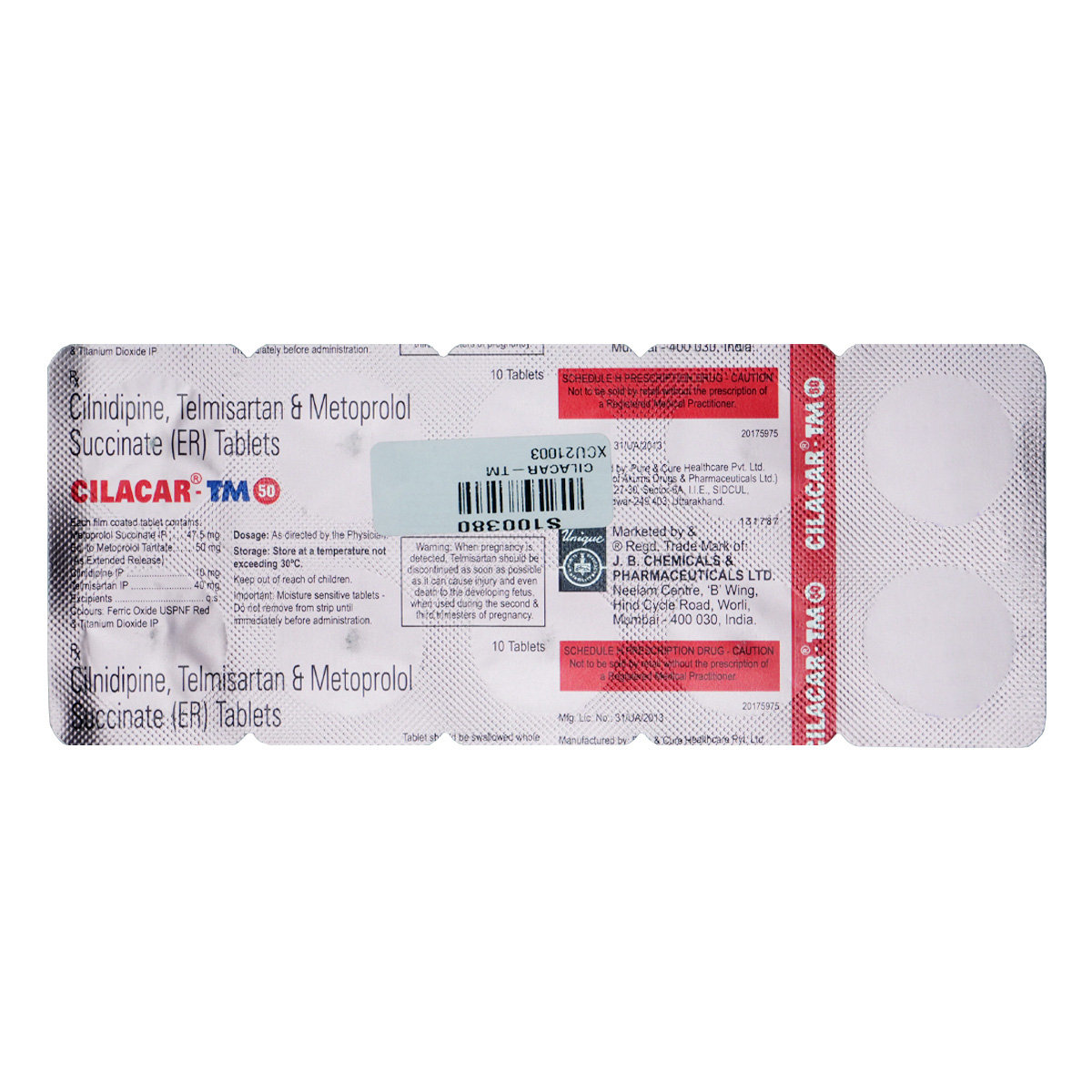
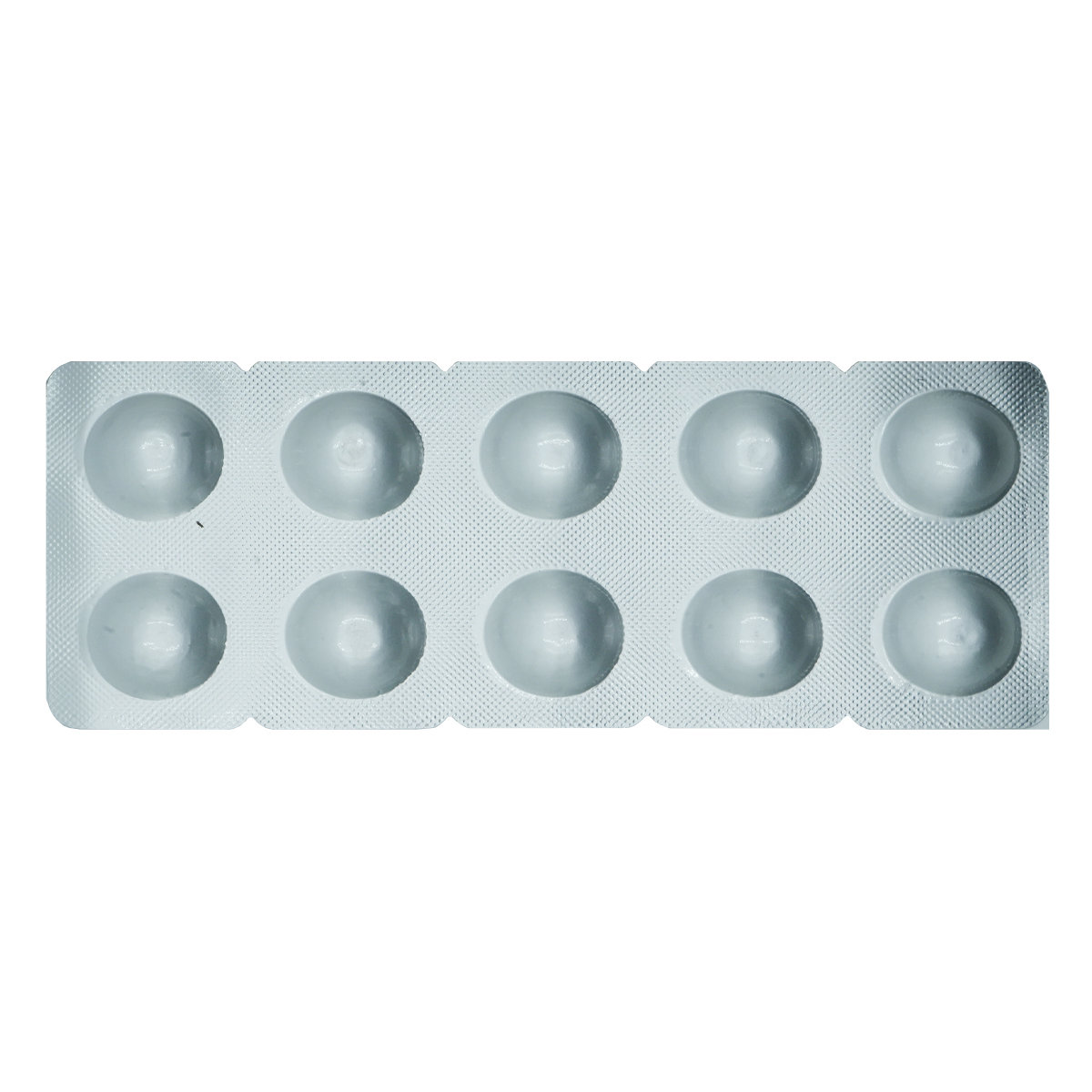





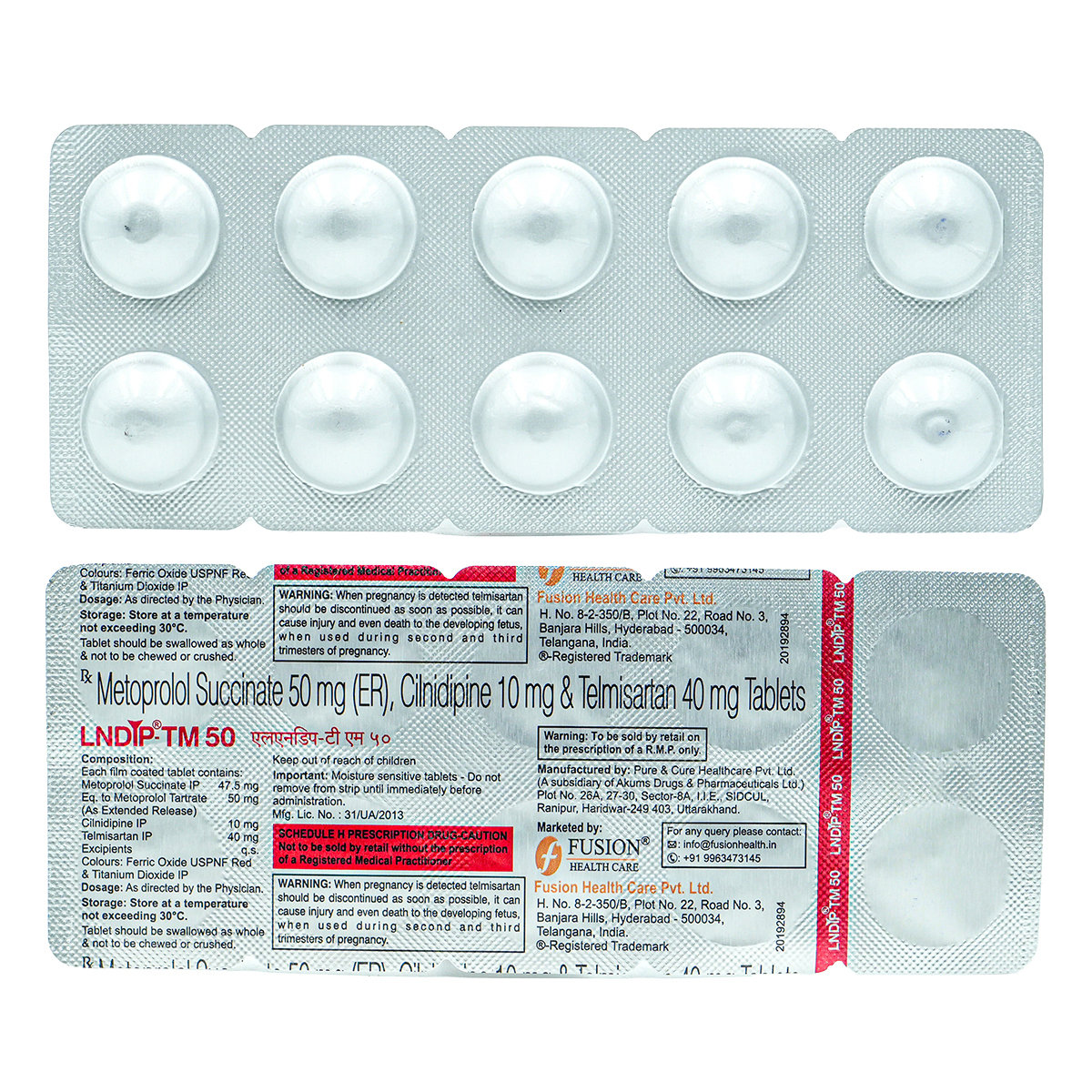

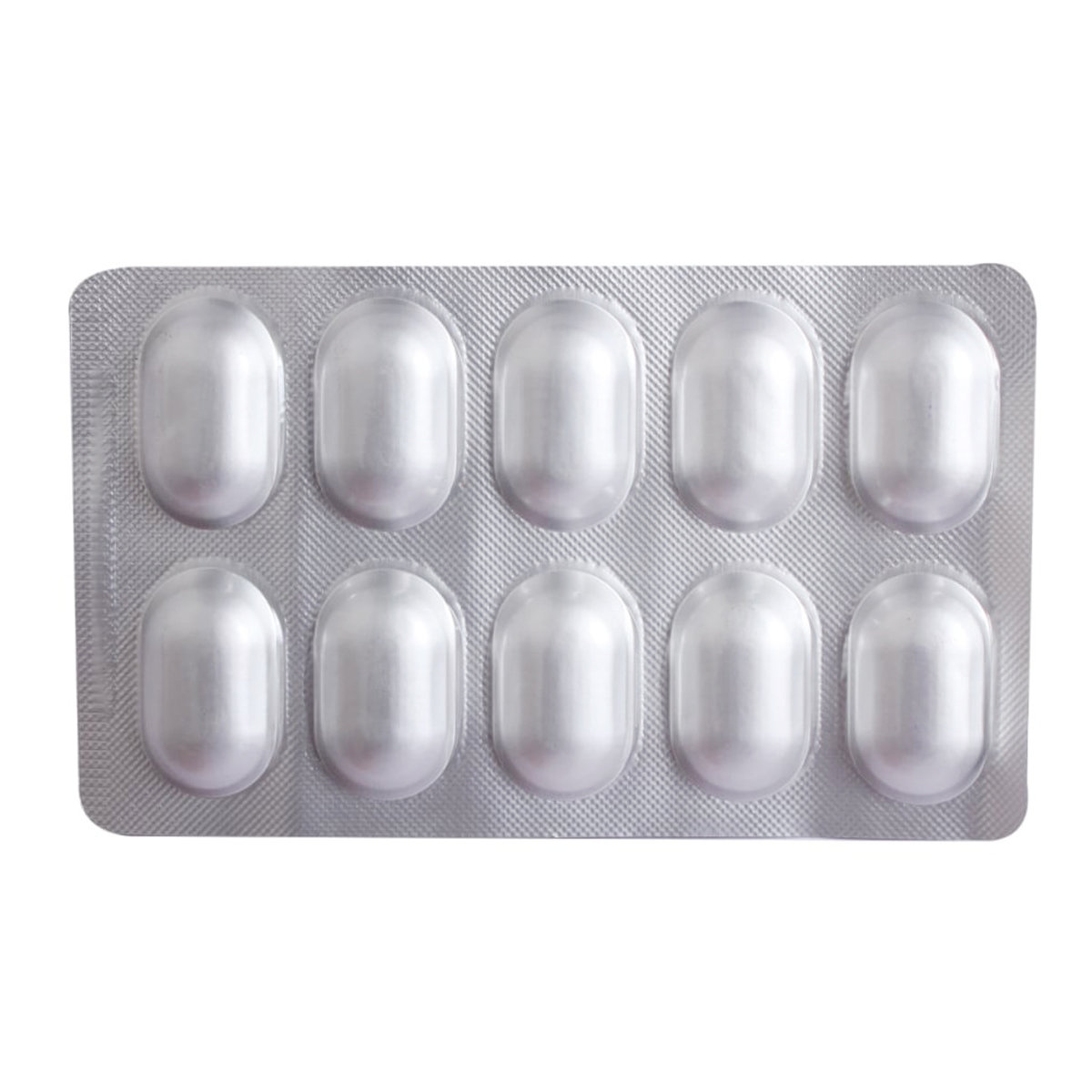
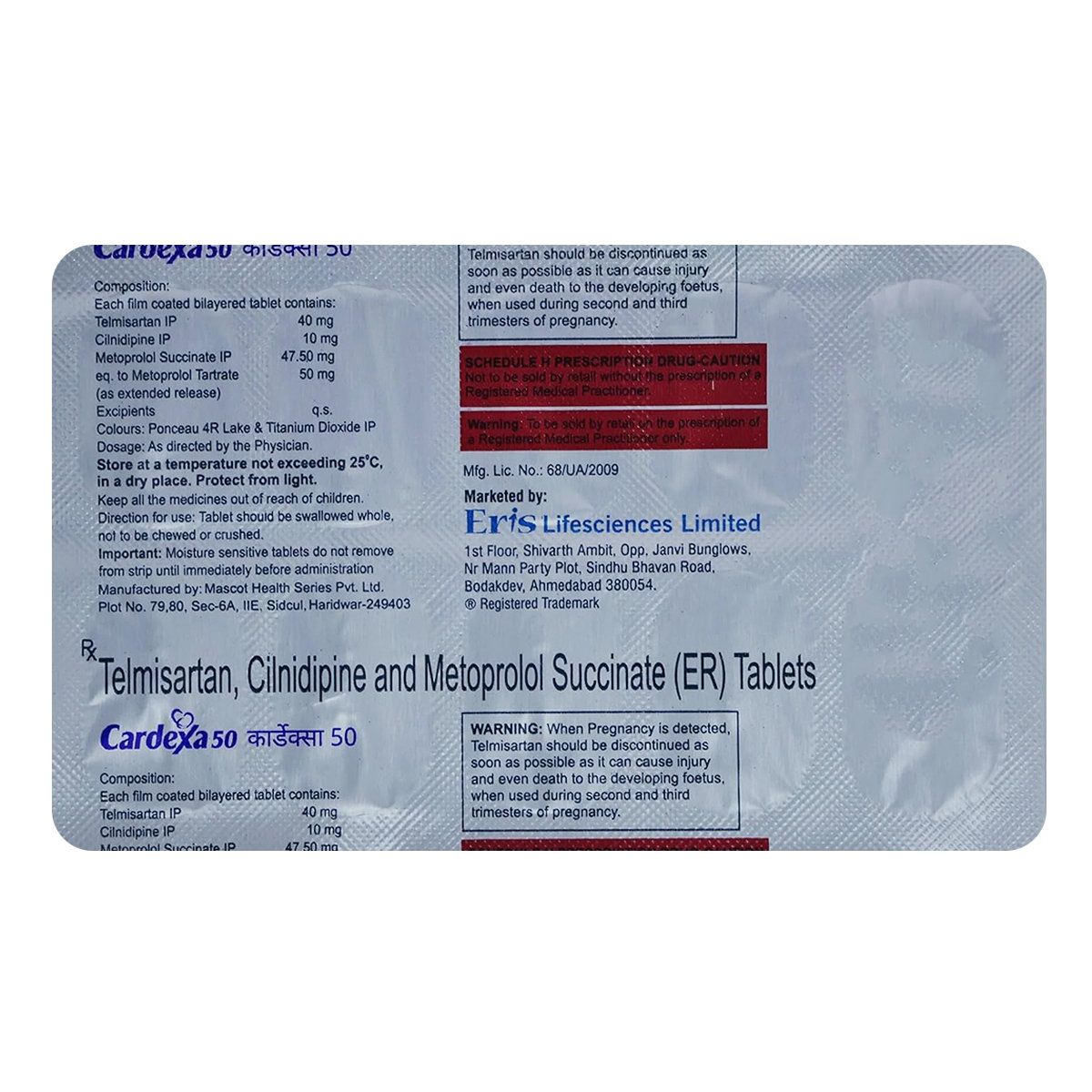

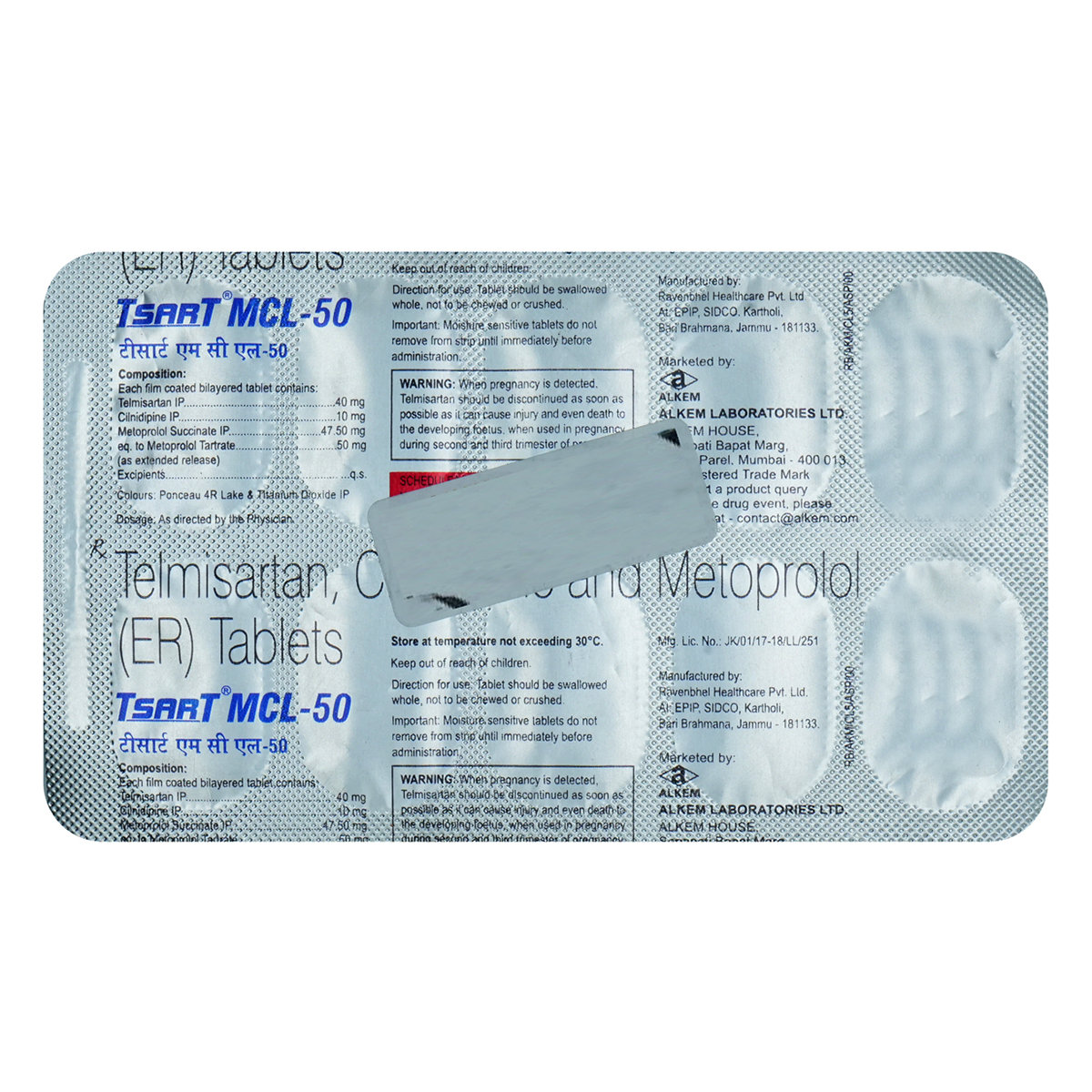
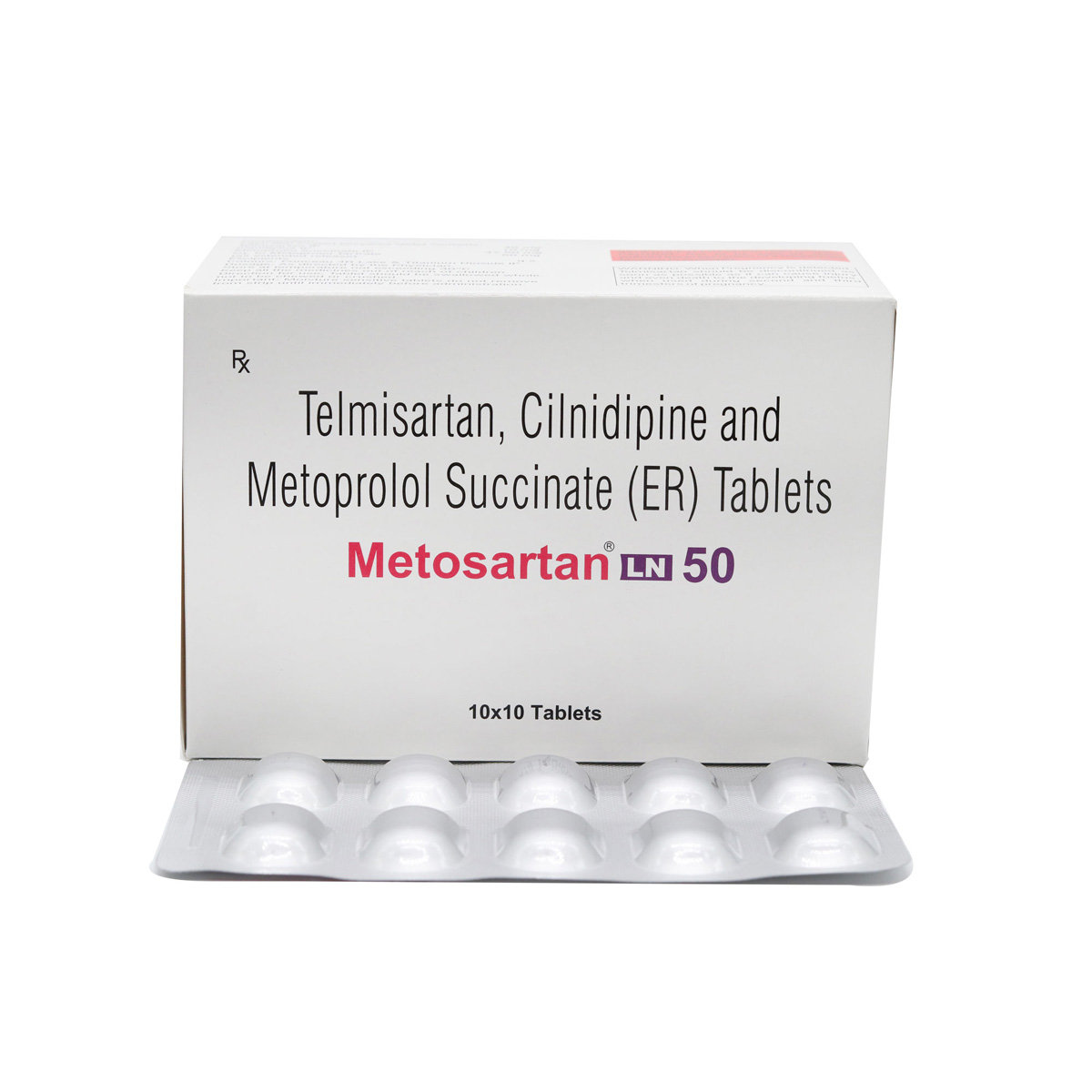

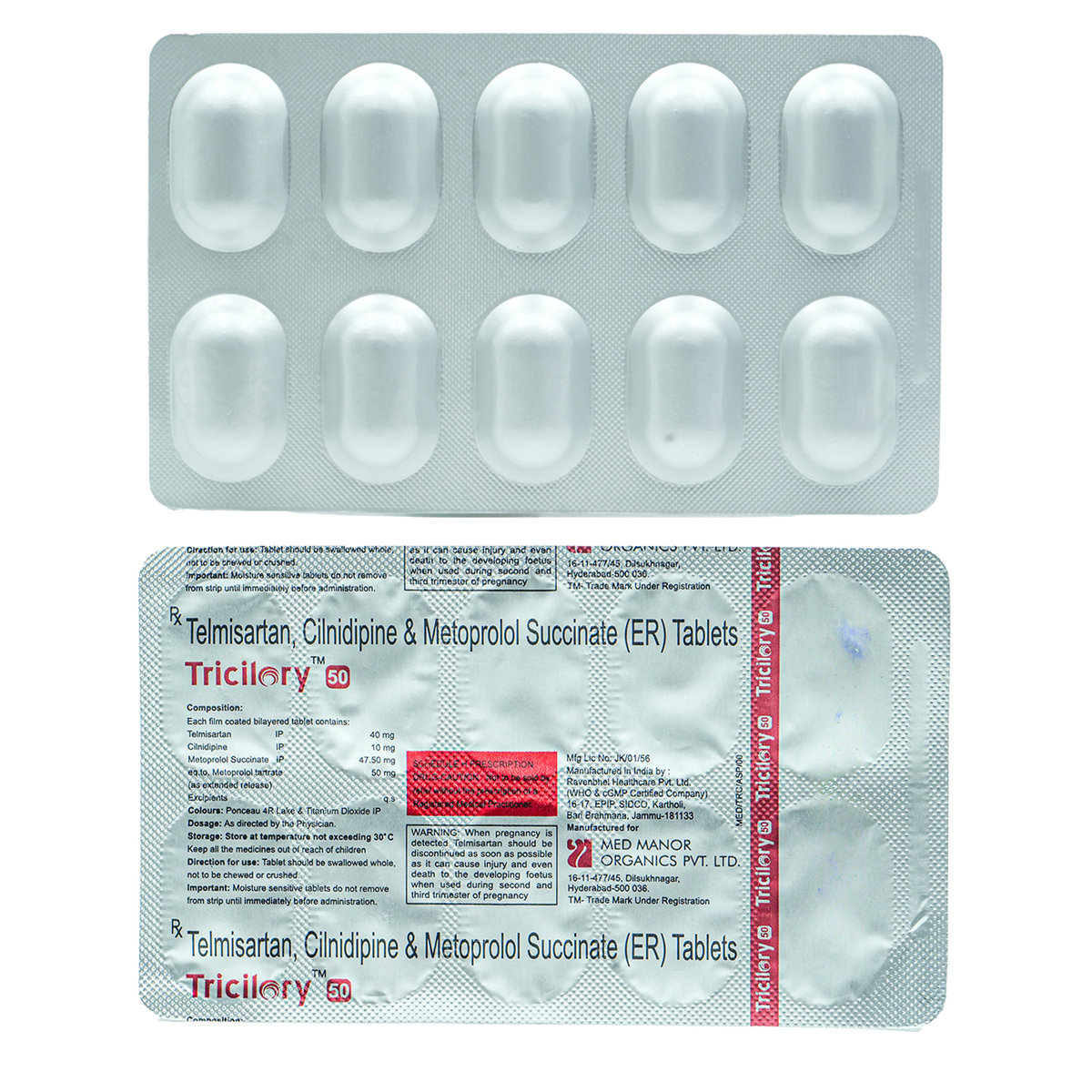
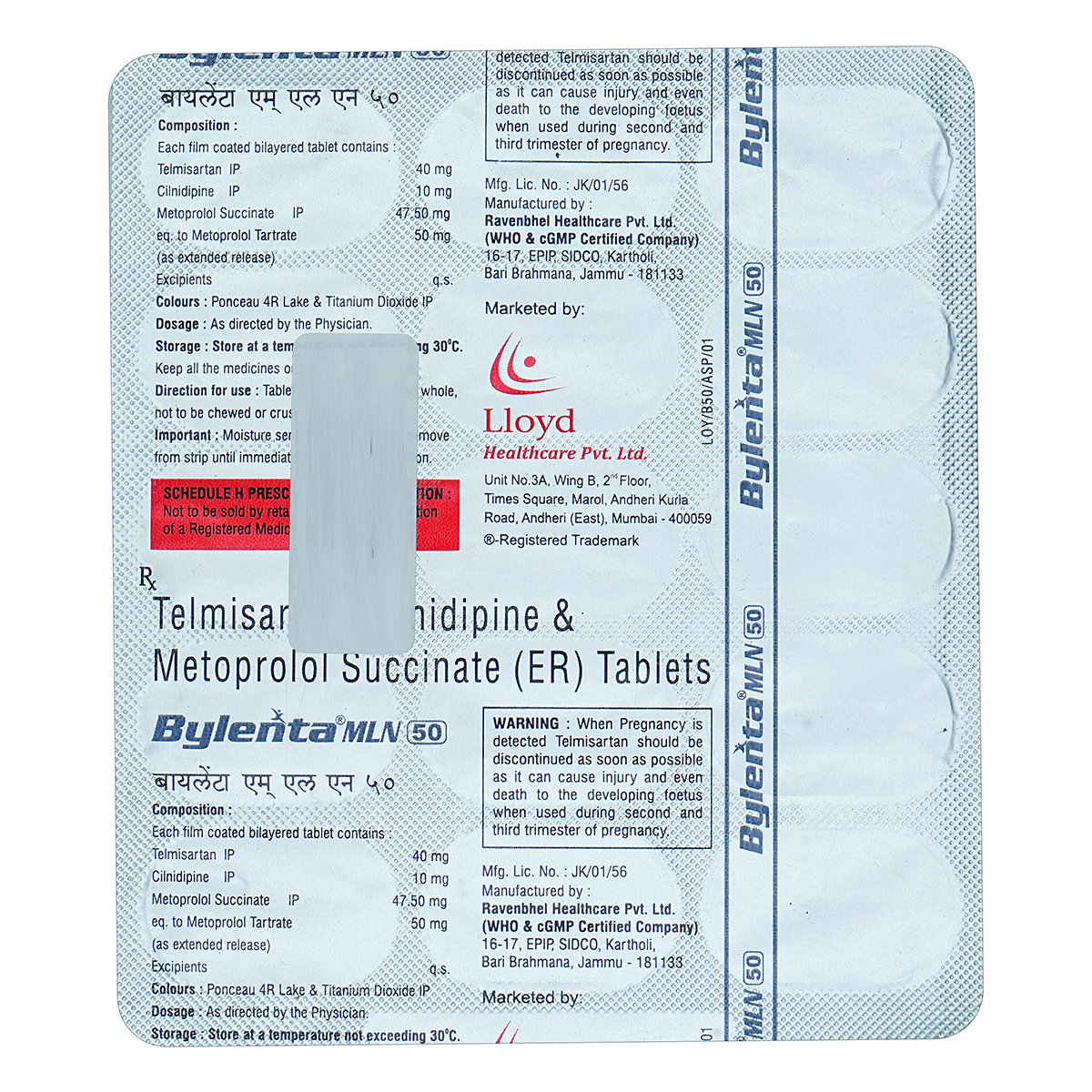
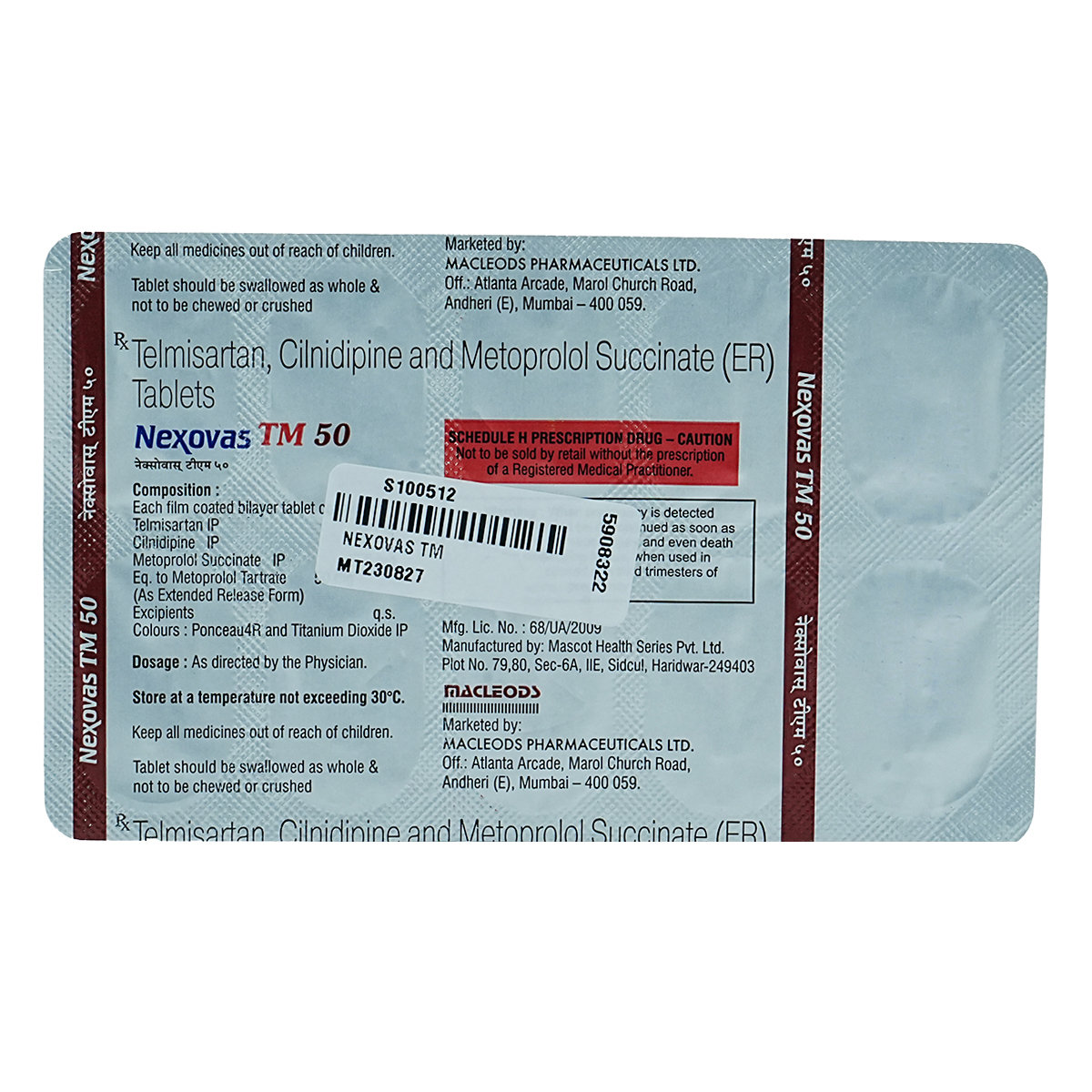
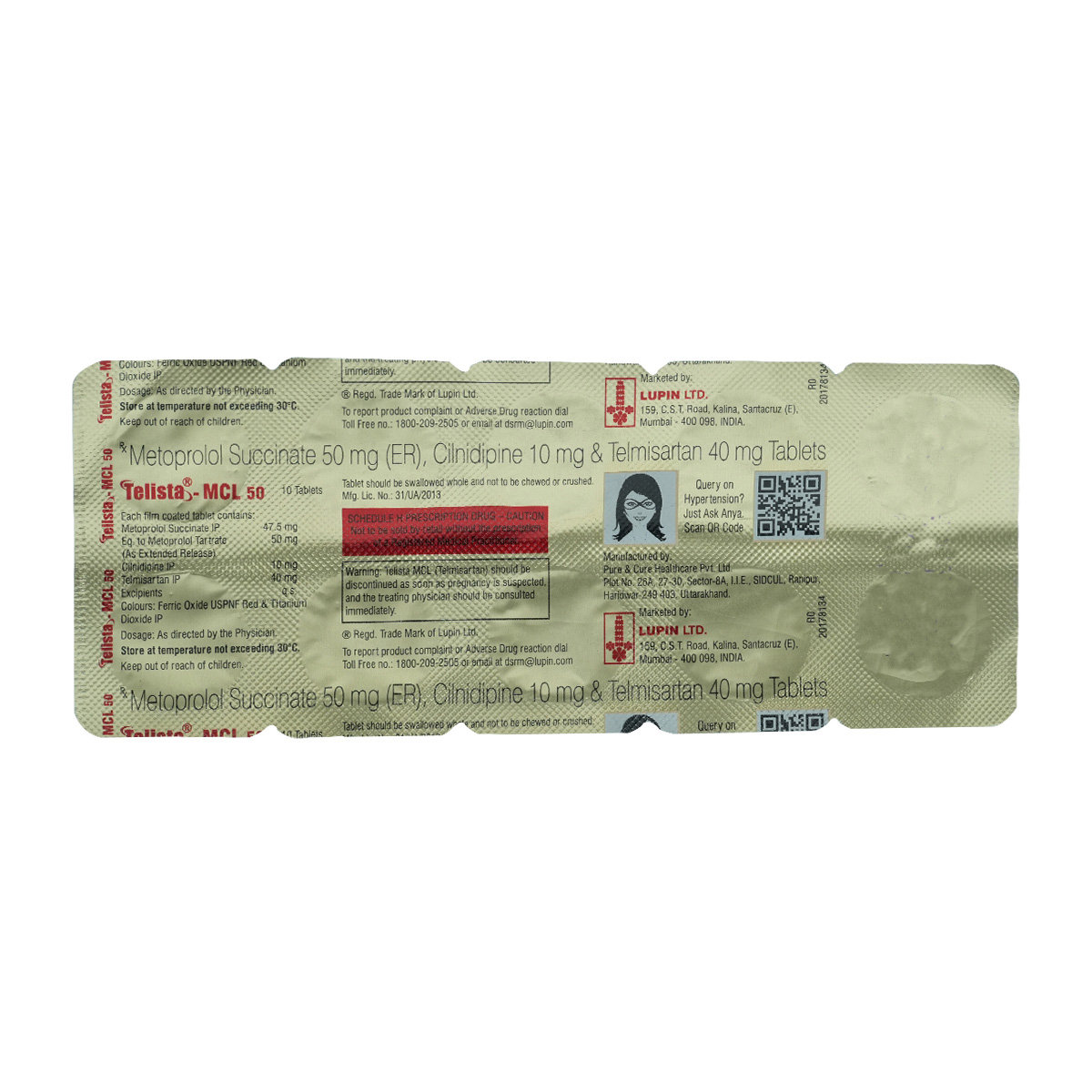
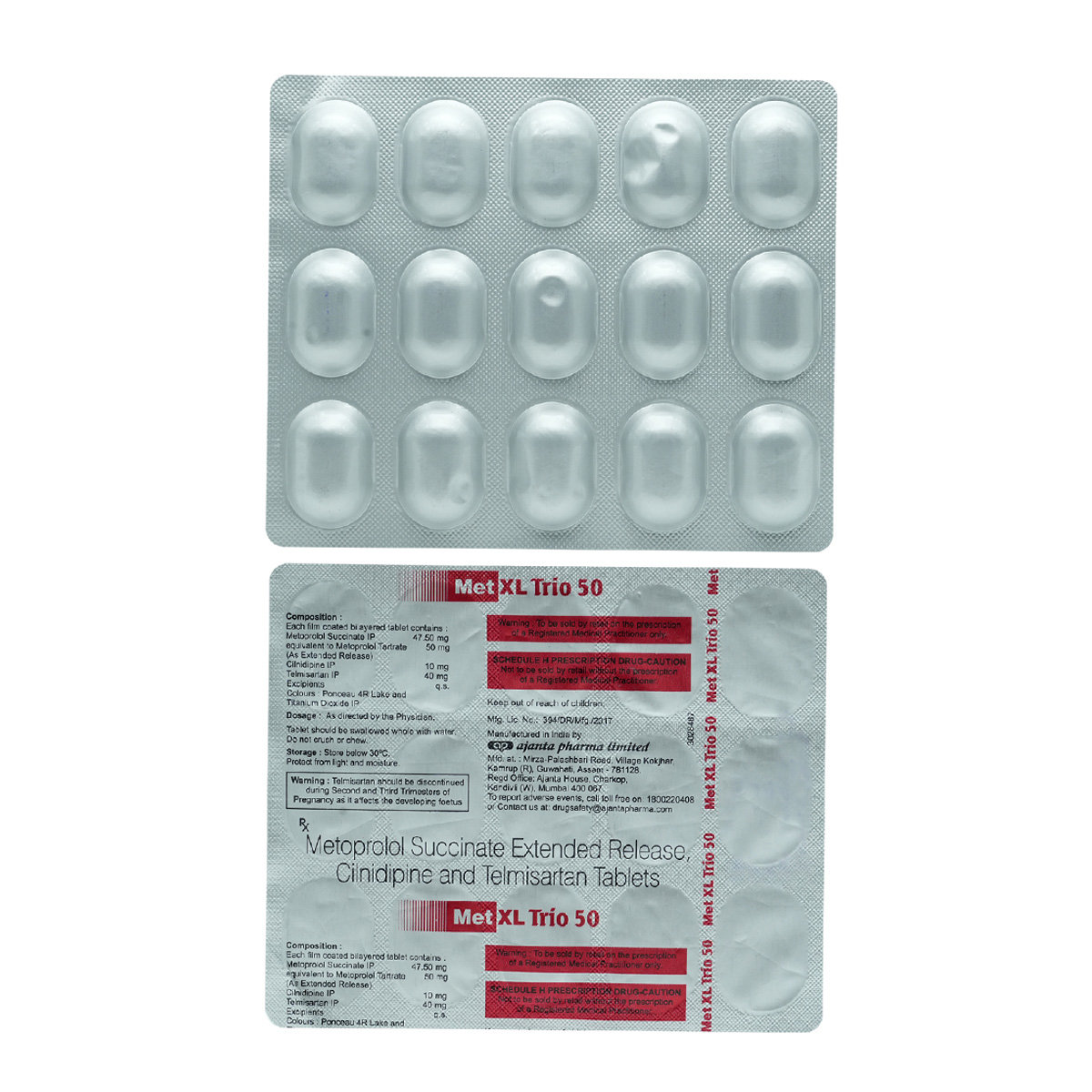

_0.jpg?tr=q-85)

